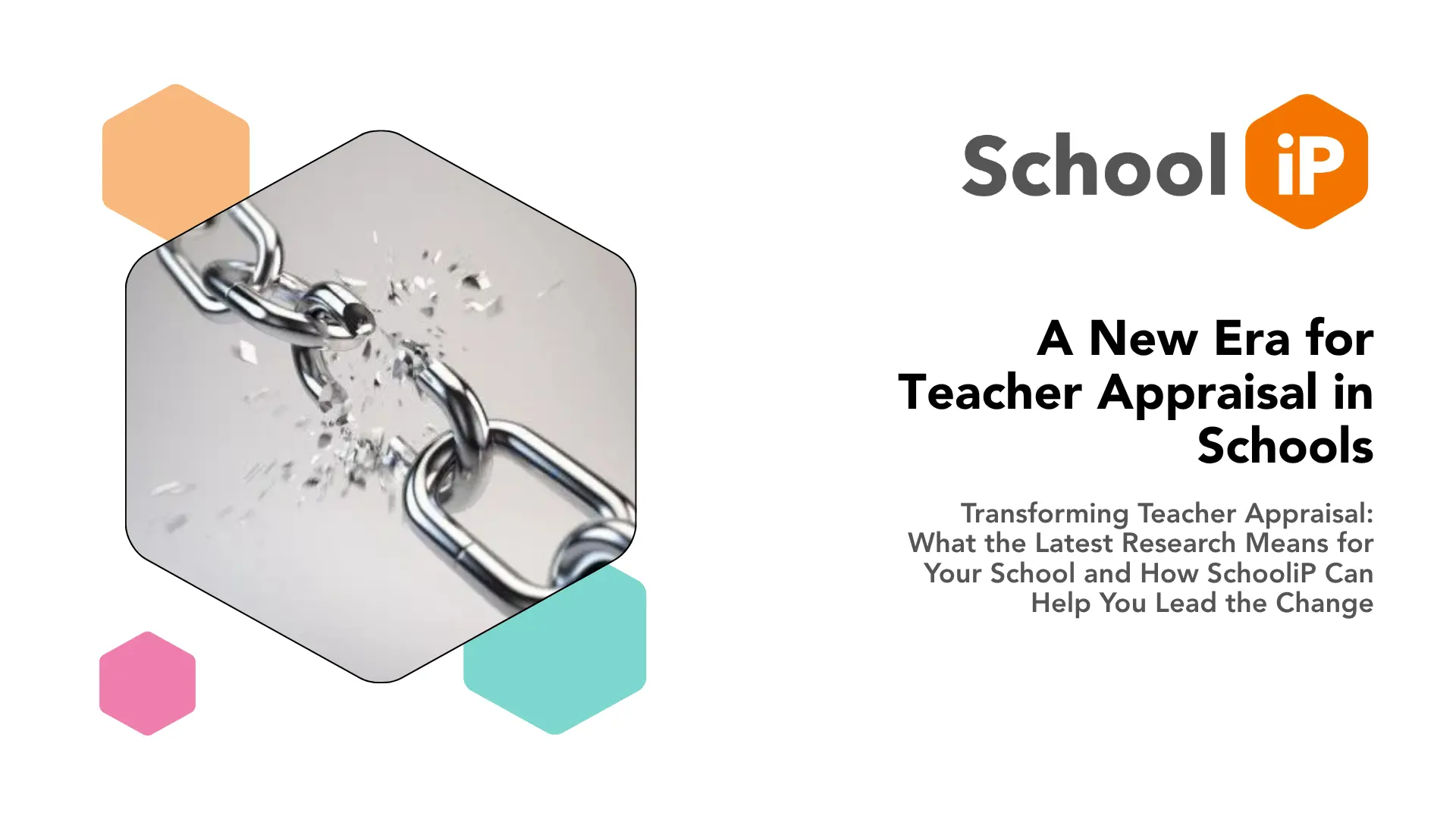A New Era for Teacher Appraisal in Schools


Education is changing, fast. With the removal of mandatory Performance-Related Pay (PRP) for teachers in England, schools now have the freedom to redesign how they approach appraisal and professional development. This shift reflects growing recognition that traditional, compliance-driven systems have not delivered the improvements in teaching quality or retention that were once promised.
At the forefront of this rethink is the Teacher Development Trust (TDT). In their important new report, Transforming Teacher Appraisal, the TDT lays out clear, research-based guidance for schools that want to move from performance management to professional growth. Drawing on national and international evidence, the report outlines how schools can design appraisal processes that build trust, improve teaching, and align directly with school improvement goals.
The report challenges long-standing assumptions about teacher appraisal and offers a fresh, compelling alternative: one that prioritises people, development, and impact.
1. Focus on development, not compliance
High-stakes annual reviews and rigid PRP links increase teacher stress and rarely improve student outcomes. Appraisal is far more effective when it centres on growth, feedback, and coaching.
2. Use a broader evidence base
The most effective systems combine classroom observations, peer input, self-reflection, and student feedback. This provides a more rounded and fairer picture of teacher development.
3. Build trust through teacher agency
Appraisal should involve teachers in shaping their own goals and development. When teachers have ownership of the process, motivation and retention both improve.
4. Connect development to strategic priorities
Appraisal should feed directly into the school’s broader improvement plan. When everyone can see how their work contributes to shared goals, alignment and morale increase.
5. Create a culture of professional dialogue
Appraisal should not be a one-off judgement but an ongoing, supportive process. Coaching, regular feedback, and reduced bureaucracy all contribute to stronger outcomes for both staff and students.
The report reinforces that schools have an opportunity to build appraisal systems that reflect new policy and a new mindset, rooted in support rather than surveillance.
While the research makes a strong case for change, making it happen in practice takes the right tools. This is where SchooliP can help.
SchooliP is a flexible, intelligent platform that helps schools manage appraisal, CPD, and improvement planning all in one place. Most importantly, it is built to adapt to the direction your school is heading in. Whether you are fully moving away from PRP, introducing coaching models, or keeping some elements of traditional pay progression, SchooliP supports your approach, not the other way around.
SchooliP allows you to build your own appraisal workflows, reflecting your school’s culture and strategy. You can create templates that support developmental models, such as coaching and peer observation, or retain structures that link final reviews to pay progression where appropriate. It enables a smooth transition for schools who want to move gradually or experiment with hybrid models.
Every teacher’s objectives can be linked to your school development plan. This creates transparency and clarity for staff, helping them see exactly how their role contributes to the bigger picture. Leaders gain real-time oversight of progress towards key goals, making SchooliP an effective tool not just for individual development but for whole-school improvement.
Instead of one-off, high-pressure reviews, SchooliP supports continuous, low-stakes feedback throughout the year. Lesson observations, CPD activities, reflections, coaching conversations, and peer feedback can all be captured in one place. This promotes professional learning and helps build the kind of trust-based culture the TDT report advocates. Collaborative approaches such as teaching sprints can also be supported within SchooliP, further embedding a culture of shared development and improvement.
No two schools are the same. With SchooliP, you can adapt appraisal templates for different roles, departments, or phases. You can update your process as your approach evolves without needing to start again. Whether you lead a single school or an entire trust, SchooliP gives you control without complexity.
The Teacher Development Trust’s report is a timely call to action. Schools have a rare opportunity to rethink appraisal and make it work for the people it’s meant to support. This is not about lowering expectations, but about creating systems that are fairer, smarter, and more effective.
SchooliP is ready to help you do just that. It provides the structure and flexibility to put these ideas into practice, at a pace that suits your school. Whether you’re overhauling your process or making smaller changes, SchooliP can help you embed meaningful appraisal into your wider strategy for school improvement.
Developed in partnership with schools and shaped by specialists who understand the pressures and priorities of school leadership, SchooliP has been designed with empathy, flexibility, and purpose. Our team works closely with education professionals to ensure the platform supports your values, your context, and your ambitions.
If you're ready to move appraisal from performance management to professional growth, SchooliP is ready to move with you.